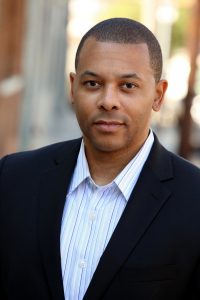
22 Sep 2023 Derryck Green: The Key To Student Excellence Is Married Mothers And Fathers
In a recent commentary published by Issues & Insights, Project 21 Ambassador Derryck Green argues that having married parents will benefit black students much more than the liberal (and demoralizing) affirmative action strategies rooted in critical race theory (CRT) and so-called “equity.”
An edited version of the original commentary is below.
The demand to remove the SAT and ACTs from undergraduate admissions is growing. Currently, only 20 states and Washington D.C. require the SAT for high school juniors. The California State University system has already removed it. The University of California will phase out the SATs and ACTs over five years.
The removal of standardized tests is because blacks’ and Latinos’ scores were consistently lower than those of their white and Asian counterparts.
Most colleges and universities want equity – not equality. Equity magically equalizes outcomes for all students, depriving those who demonstrate merit-based success from those who can’t. Equity is a way to increase “diversity” on college campuses, granting acceptance to blacks and Latinos over whites and Asians who score higher on their SATs and grade point averages.
The average SAT score in 2022 for Asians was 1229. For whites, it was 1098. For Hispanics/Latinos, it was 964, and for blacks, it was 926. The highest score on the SAT is 1600.
The average ACT score in 2022 for Asians was 24.7; for whites, it was 21.3. For Hispanics/Latinos, it was 17.7; for blacks, it was 16.1. The highest score on the ACT is 36.
I’m glad that the Supreme Court eliminated race-based affirmative action.
If you have yet to read the decision, you should. Chief Justice John Roberts’ opinion was acceptable.
Justice Clarence Thomas’ opinion challenged Justice Ketanji Brown Jackson’s estimation that historical discrimination means the country must engage in contemporary discrimination. Jackson’s perspective reflects those who advocate critical race theory and antiracism, such as Ibram X. Kendi.
CRT Critics Misplace The Blame For Racial Disparities
Advocates of critical race theory claim that academic merit, excellence and hard work are “myths” to preserve “white privilege” and “white supremacy” regarding the racial achievement gaps. Merit-based success and personal excellence are disappearing from our cultural vocabulary. Supporters of CRT want to focus on “systemic oppression” and “institutional racism” to show why racial achievement gaps exist.
“Systemic oppression” and “institutional racism” are not legitimate explanations for why these racial achievement gaps endure. Unfortunately, some people still hold racially discriminatory views. Individual racism is not the same as racial segregation, the paramount example of institutional racism in America. “Systemic oppression” and “institutional racism” ended with the Civil Rights Act of 1964, which prohibited segregation and discrimination based on race, color, religion, sex and national origin. Provisions of this act forbade discrimination based on sex and race in hiring, promoting and firing.
If one looks at CRT, advocates of this ideology never explain how “systemic” or “institutional” racism exists. CRT critics state both as facts without explicit examples to prove the conspiracy. Stokely Carmichael and the Black Power Movement continued to use the phrase “institutional racism” after segregation was outlawed. It is up to those who promote CRT to express, specifically, where this racism exists, why, and how since they suggest that systemic racism and institutional racism remain. Their explanations for these ideas are unclear to justify these claims.
Racial Discrimination Harms All Students
History shows us that racial discrimination made our culture worse, not better. But Kendi, in his book ”How to Be an Antiracist,” suggests that discrimination is the answer to past and present discrimination. Kendi says, “The only remedy to racist discrimination is antiracist discrimination. The only remedy to past discrimination is present discrimination. The only remedy to present discrimination is future discrimination.”
Unfortunately, school administrators are following Kendi’s instructions. School districts nationwide are implementing the tenets of critical race theory and antiracism to the detriment of all students.
Many districts nationwide are appropriating CRT and antiracism curricula. CRT and antiracism are racial anthropologies that practice the same racism against whites that blacks faced during segregation. It diminishes the agency and opportunity of black and Latino students and encourages them to adopt nihilism and racial victimization. Schools must teach students the proven path to excellence for people of all backgrounds. Parents in school districts around the country want schools to teach children what they can accomplish – and who they can be – rather than what they can’t do or can’t be.
The Real Key To Excellence
In 2003, Ron Haskins and Isabel Sawhill, senior fellows at the Brookings Institution, published a policy paper identifying four realities that increased economic opportunity for poor people. These realities are to finish high school, get a full-time job, and wait until age 21 to get married and have children. This research shows that of those who follow this plan, almost 75% have joined the middle class, while only 2% are in poverty. The American Enterprise Institute found that of millennials who followed this plan, 97% were not poor when they reached adulthood.
Marriage is the key to improving student morale and academic excellence. Low marriage rates and disinterested parents are the real reasons for the racial achievement gaps regarding education – especially concerning the so-called “oppressed.” Affirming excellence, academic merit and diligence are much easier when married mothers and fathers provide home stability and are actively involved in their children’s education.
In 2020, the marriage rate for black immigrants was 61%, the Asian marriage rate was 58%, the white marriage rate was 52%, and the Hispanic marriage rate was 43%. The black marriage rate was 30% compared to the national marriage rate of 48%.
Furthermore, 52% of black men and 48% of black women have never been married. The number of black children that lived in single-parent households in 2021 was 64%, compared to 42% for Latinos, 24% for whites, and 16% for Asians.
Single parents can try to instill moral qualities in their children – such as excellence and merit-based academic achievement. Sometimes it works. Sometimes, it doesn’t because children need married mothers and fathers to ensure stability regarding home life and their children’s education.
If an unmarried mother works, sometimes there’s no father at home. Without a father, the children will watch television and social media more than they study and excel in their academic subjects. Learning leads to higher test scores. Without a father instilling within the children confidence and the need to set and achieve goals, people will think they cannot achieve greatness without racialized equity, which undermines achievement.
According to the Pew Research Center, black and Hispanic teens stand out for being on the internet more frequently than white teens. Some 56% of black and 55% of Hispanic teens say they are online almost constantly, compared with 37% of white teens.
The data confirm this. Children raised by active, present fathers are less likely to drop out of school, wind up in jail and are more likely to avoid high-risk behaviors. Also, fathers who attend events with their children are more likely to impact them confidently than absent fathers.
Society Should Encourage Marriage To Foster Excellence
Critical race theory’s anthropology of racial discrimination focuses not on success but on victimization. This trend can be reversed through the Christian principles of human flourishing – with pastors explaining the need for mothers and fathers to be married first, have children and be as involved as possible in their children’s lives – as God ordained.
Suggesting that black and Hispanic children can’t achieve excellence is discrimination. Frankly, it’s prejudiced to say that lacking academic excellence is because blacks and Hispanics/Latinos are “oppressed” or “victimized” by white society. This idea robs both groups of free will, personal responsibility and individual initiative, which, if internalized, will force both groups to expect leniency from mainstream America.
Thomas Sowell once said, “It is amazing how many people think they are doing blacks a favor by exempting them from standards others are expected to meet.” Sowell’s wisdom rephrases the much-repeated quote, “the soft bigotry of low expectations.”
Believing that groups are “victimized” transfers agency from blacks and Hispanics/Latinos to American culture based on equity, leveraged by white guilt and redemptive liberalism.
Shelby Steele, a Hoover Institution fellow, said that redemptive liberalism is an activism that initially appropriated a redeeming profile by focusing on social engineering for blacks – rather than allowing blacks, and eventually others, the individual freedom to achieve excellence. This liberalism eventually became a moral authority. It wanted a more ambitious goal of an equal society, concerning itself with the wounded souls of racial victims and the self-righteous moral intentions of the leftists who embraced this liberalism.
Married parents involved in their children’s lives set the foundation for morality, excellence and merit-based achievement in all areas of life.
Personal, moral, academic, economic and merit-based forms of excellence are superior to racial equity. Racial equity sees the so-called victimized as helpless and needing special treatment to excel. Nothing could be further from the truth.
Blacks only need their parents to get and stay married to produce moral and academic excellence.
Derryck Green is a member of Project 21, a National Leadership Network of Black Conservatives. A version of this commentary was initially published at Issues & Insights.




